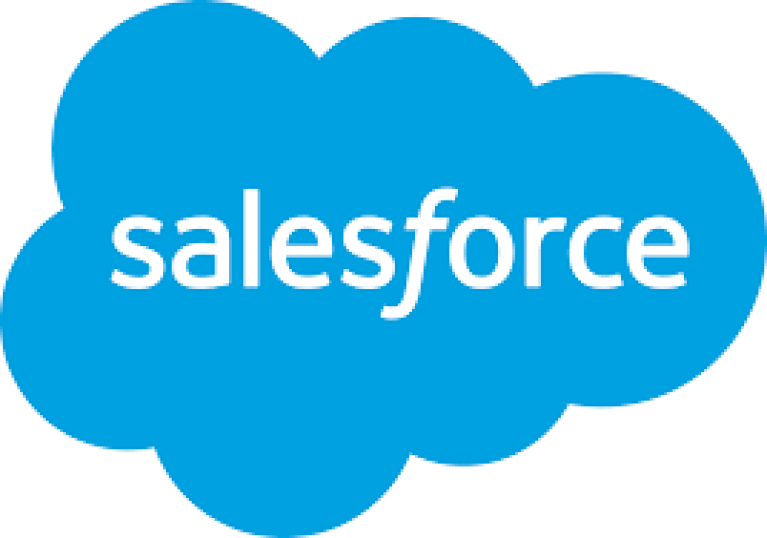
Salesforce: A Comprehensive Review Of The Leading CRM Platform
- Salesforce allows extensive customization to meet your requirements.
- Effective lead management and scoring systems help firms nurture prospective consumers.
- Salesforce offers powerful reporting for data-driven decision-making.
- Setting up is simple, and help is accessible.
- A 30-day free trial lets firms try it out before committing.
- Salesforce effortlessly interfaces with over 1,000 applications, enhancing its capabilities.
- Salesforce lacks a free plan, making it less accessible for small enterprises.
- It may be more costly than top rivals, straining budgets.
Salesforce CRM dominates customer relationship management. This in-depth examination examines Salesforce’s advantages and why many firms use it. Salesforce has grown into a powerhouse with many features and capabilities after 20 years. Let’s discuss this CRM platform’s core to see why so many love it.
What Is Salesforce CRM:
Salesforce CRM is an all-in-one customer relationship management system. More than tracking leads and contacts is required. It would help if you maximize your opportunity to close. Salesforce’s customization and integration possibilities set it apart. Salesforce scales to match your demands, whether you’re a small or large firm. Using cloud-based apps removes the requirement for on-site hardware or software and provides a single dashboard for sales automation and marketing. Salesforce relies on leads, opportunities, and customer data to assist enterprises through the customer acquisition process.
History Of Salesforce:
Salesforce has pioneered the technology and led the industry. Salesforce, founded in 1999 by Marc Benioff, pioneered SaaS with the motto “the end of software.” Despite dot-com issues, the firm flourished quickly. Salesforce’s sales grew from $5.4 million in 2001 to over $100 million in 2003, proving its revolutionary potential.
Salesforce’s expansion continued, reaching over $1 billion in sales by 2009, cementing its worldwide customer relationship management leadership. Salesforce developed innovative services, including IdeaExchange, Service Cloud, Trailhead (a free learning site), and Einstein (an AI platform enabling Salesforce cloud services). These improvements improved the platform and helped organizations and customers traverse the CRM ecosystem, making Salesforce the market leader.
How Does Salesforce Work:
Salesforce CRM optimizes sales and customer management with its cloud-based platform. Leads, opportunities, and client data form its foundation. How Salesforce works:
Leads:
Prospective buyers who show interest in a product or service are leads. Salesforce helps companies handle leads. Users may keep lead information such as contact information and interest on the site.
Opportunities:
Opportunities are sales and income opportunities. Leads may become opportunities as they go through the sales funnel. Salesforce tracks contract amount, chance of closure, and projected close date. This tool helps sales teams prioritize potential prospects.
Customer Records:
After closing, an opportunity becomes a customer record. All client acquisition data is stored in these customer records. Contact information, purchase history, interactions, and other data that give a holistic customer perspective are included.
Insights And Analytics:
Salesforce gives significant insights and analytics throughout. You can use these insights to create data-driven choices. The software tracks sales, customer interactions, and corporate data using reporting and visualization capabilities. The data-driven approach helps firms enhance their strategy and sales processes.
Customization:
Salesforce excels in adapting to varied sectors and business demands. Businesses may tailor the platform to their workflows, procedures, and industry needs. This flexibility is needed to customize Salesforce for business models.
Integration:
Salesforce’s wide connection is another asset. The platform integrates with many third-party apps, allowing organizations to add tools and features to their CRM. To simplify operations, Salesforce integrates with marketing automation, accounting, and communication systems.
Salesforce CRM streamlines lead, opportunity, and customer management. It delivers insights, customization, and easy connection with other corporate tools. This system streamlines client acquisition, boosts revenue, and informs corporate choices using data and analytics.
Salesforce CRM Features:
Salesforce has essential lead management, complex processes, and sales pipeline modifications. CRM could be more straightforward, but it is one of the most flexible. It’s a business environment, not just a CRM. Its highlights are forecast management, quoting, contracts, configurable reporting, and sophisticated permissions. Salesforce interacts with 1,000+ platforms, making it flexible for business requirements.
What Sets Salesforce CRM Apart:
Established enterprises looking to optimize sales or combine systems into a single CRM thrive with Salesforce CRM. Customizability and integration assist large sales teams. Salesforce undoubtedly offers a solution to improve your customer understanding and sales processes, whether you’re a developing or established company. Salesforce may be better for firms with limited budgets.
Third-party Integrations:
Salesforce’s vast third-party integration library is a strength. It smoothly integrates with over 3,000 platforms, making it suitable for enterprises integrating numerous solutions. Salesforce’s integration features are flexible and adaptable for Slack, Calendly, QuickBooks, and specialist software integrations.







There are no reviews yet.